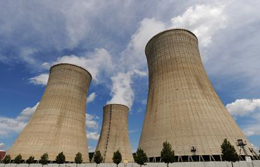28 April 2011, 18:00 UTC
Presentation:
→ Summary of Reactor Status
Presentation:
→ Summary of Reactor Status
Overall, the situation at the Fukushima Daiichi nuclear power plant remains very serious, but there are signs of recovery in some functions, such as electrical power and instrumentation.
2. Changes to Fukushima Daiichi plant status
The IAEA receives information from various official sources in Japan through the Japanese national competent authority, the Nuclear and Industrial Safety Agency (NISA). Additional detail is provided in the IAEA Incident and Emergency Centre (IEC) status summary with information received by 17:00 UTC on 27 April 2011.
3. Management of on-site contaminated water
According to the 25 April evaluation by NISA of the report submitted by the Tokyo Electric Power Company (TEPCO), there is a little less than 70,000 tonnes of stagnant water with high level radioactivity in the basement of the turbine buildings of Units 1, 2 and 3.



